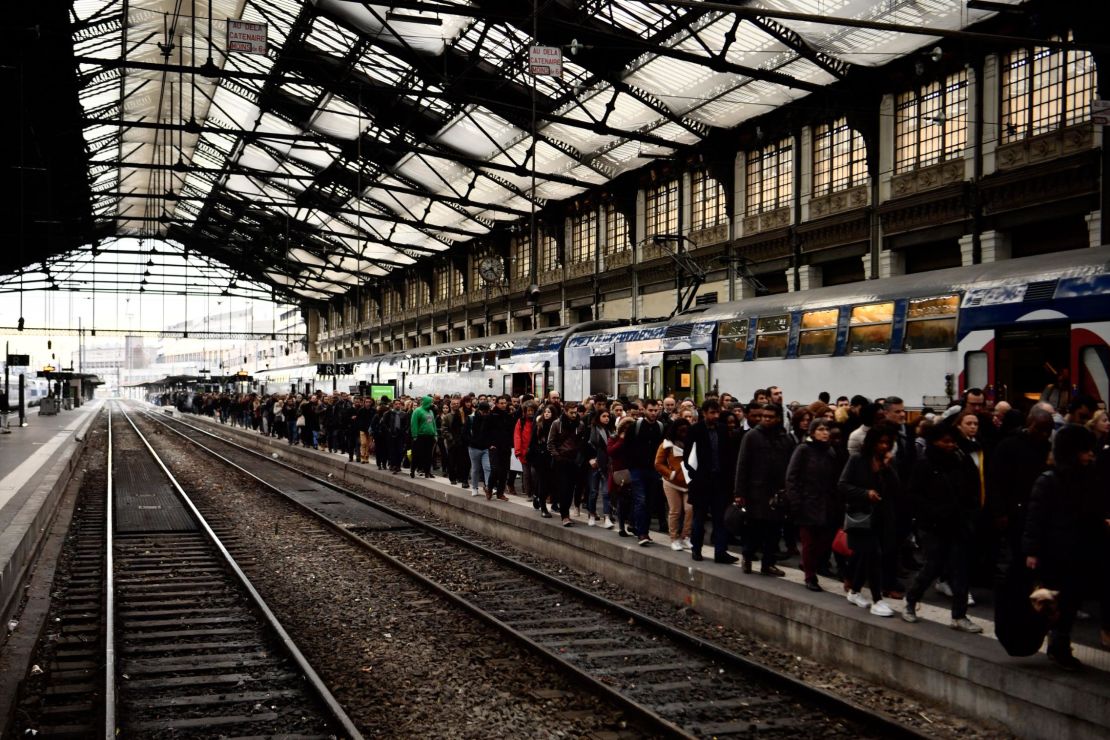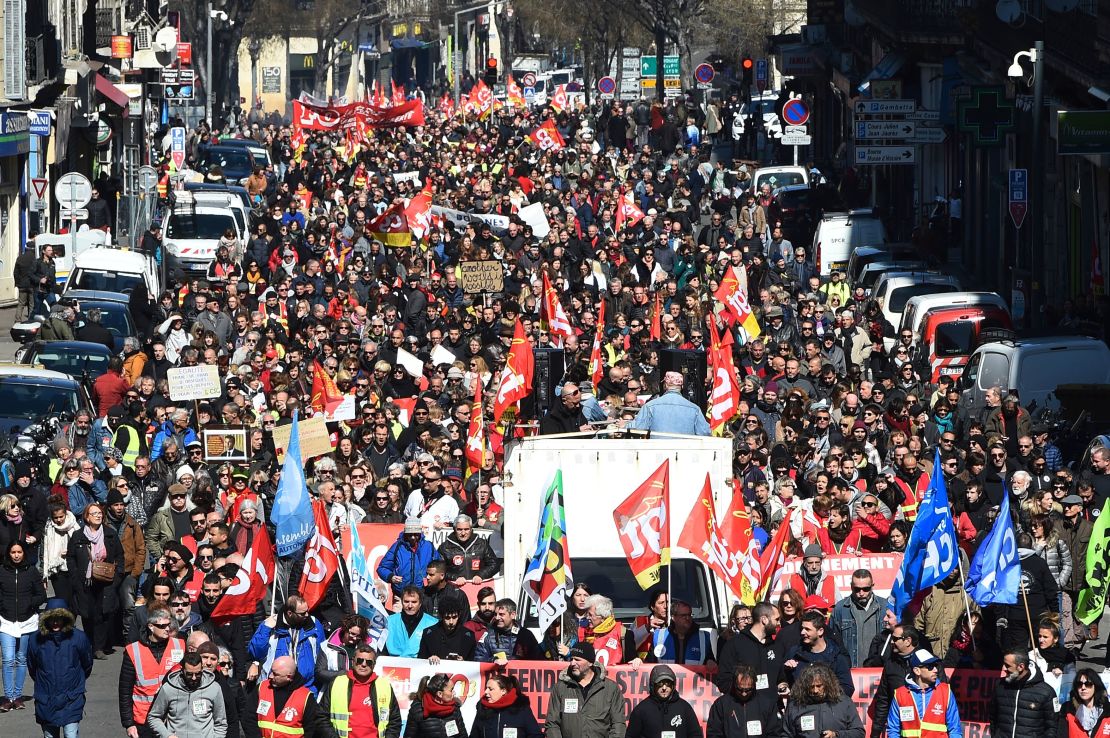French President Emmanuel Macron was facing a major test of his sweeping reform agenda with a series of strikes across the transport and public sectors on Thursday.
Air-traffic controllers, train conductors and teachers walked off the job furious at the government’s planned labor overhauls, causing widespread disruption for commuters and travelers.
Only 40% of high-speed TGV trains and around a third of commuter trains were operating, CNN’s Jim Bitterman reported from Paris’ Gare Saint-Lazare railway station. Additionally, around 30% of flights from Paris airports have been canceled, mostly on short-haul routes.
Civil servants are also expected to protest a string of reforms – including planned cuts to public-sector headcount by 2022 – on Thursday, with hospital workers and teachers joining some 140 demonstrations around the country.
Thursday marks the first day of a three-month wave of industrial action by rail workers, who will strike on two out of every five days between April and June. More than 100 marches were planned across the country on Thursday. Unions are furious over plans to scrap jobs-for-life guarantees and generous retirement plans.

Govt: What people voted for
While Thursday’s strikes are likely to inconvenience many travelers, Macron was elected on a mandate of reforming the country’s famously rigid labor laws.
Outlining his plan last year, Macron said that his reform package would aim to give companies more hiring and firing flexibilities, more power to negotiate working conditions directly with employees and less financial risk in cases of wrongful dismissals.

The measures would also make it easier for foreign companies to close sites in France and give new flexibility to companies with fewer than 50 employees, which make up 95% of French business.
Macron’s government has justified its plans by arguing that it was what people voted for last May.
But in recent months, support for the French leader has dropped in the polls. Recent surveys suggest that while a large chunk of voters support the strikes, a majority backs the reforms, Reuters reported.
The French government has been trying to push through reforms for years, most notably in 1995. Then-Prime Minister Alain Juppe had proposed restructuring SNCF, the state railroad system, and higher retirement ages for drivers.
But he was forced to concede after the country’s powerful unions adopted a hard-line stance, sending thousands to the streets in demonstrations that paralyzed the nation.
“What we need to avoid is that all the grievances fuse together, as was the case in 1995,” Reuters quoted a government official as saying.
“The situation is very different from 1995. At the time there was a big discrepancy with what the government had promised during the elections and what they eventually did.”
French business leaders and economists have welcomed the reform plans. France’s economic outlook for the year has been positive, with experts suggesting that while the protests are Macron’s biggest challenge thus far, he is in a much stronger position than his predecessors and unlikely to back down.
The planned strikes are currently not part of a unified union opposition, unlike in the past. The risk will come in the longer term if unions are able to persuade their members to stay home for longer, which could lead to wider economic repercussions.
Many will be watching turnout on Thursday to see what might be in store for the country over the coming months.
“Either they (the government) listen to us and it will have been just a warning shot, or they don’t listen to us and then, let me tell you that public-sector workers are very mobilized,” Laurent Berger, the head of France’s largest union, the CFDT, told RTL radio, according to Reuters.
CNN’s Melissa Bell contributed to this report.



